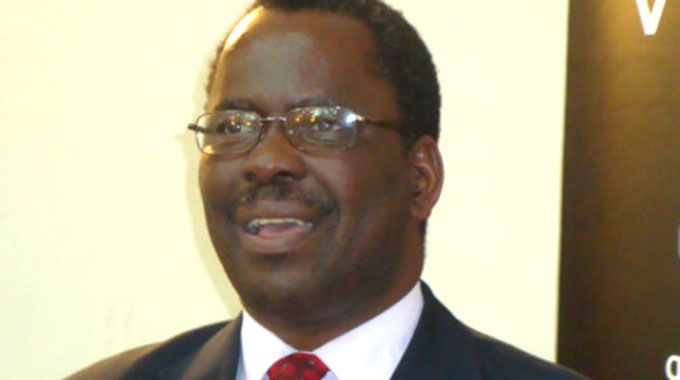Zimbabwe’s reform agenda wins endorsements
Beaven Dhliwayo Features Writer
Zimbabwe has made huge strides in carrying out social, political and economic reforms, something that has received endorsements from both its allies and foes.
Its allies and foes are all upbeat that the Government’s reform agenda is moving the country on the right track.
Early this week, Britain, which has had fractious diplomatic relations with Zimbabwe for more than a decade now, hailed the country for its resolve in undertaking major reforms to spur economic growth and benefit its citizen.
Ever since President Mnangagwa assumed office, he has spearheaded major reforms aimed at enhancing the country’s electoral processes, upholding human rights, liberalising the media and respecting other freedoms enshrined in the Constitution.
When British Ambassador to Zimbabwe Ms Melanie Robinson met Zanu-PF secretary for administration Cde Obert Mpofu recently, she reiterated her country’s commitment to see Zimbabwe succeed in the implementation of reforms.
She said Britain was keen to see Zimbabwe becoming a more prosperous, peaceful and democratic nation.
All this demonstrates that the Government is walking the talk and fulfilling its aspiration to attain the 2030 vision of becoming a middle income economy.
The country’s reforms are anchored on good governance and the rule of law, the re-orientation of the country towards democracy, upholding freedoms of expression and association, peace and national unity, respect for human and property rights, and political and economic re-engagement with the global community among other values and objectives.
Zimbabwe’s reforms have not only received endorsement from Britain alone, but China, Russia, African Union, the European Union, World Bank and the SADC region as a whole.
The EU and the World Bank have also hailed Zimbabwe’s progress towards the attainment of political and economic reforms.
EU head of delegation Ambassador Timo Olkkonen after meeting with President Mnangagwa, hailed the Staff Monitored Programme (SMP), alignment of the Constitution and commitment to replace the Public Order and Security Act among other positive steps that the country had made so far.
“Now, we have recently seen positive steps. The Staff Monitored Programme by the IMF (International Monetary Fund) is certainly one of those. We have seen movement on the constitutional alignment agenda, the media Bills, the replacement of the Public Order and Security Act (POSA),” he said.
The SMP is an initiative by the Government that seeks to enhance efficiency and service delivery in the country.
Even the civil society is also up-beat about the country’s reforms.
Media Institute of Southern Africa (MISA) Zimbabwe has also commended the strides made by the Second Republic in carrying out media reforms.
Speaking at an event to mark the 2019 World Press Freedom Day, MISA Zimbabwe chairperson Golden Maunganidze hailed the Government for its commitment towards media reforms.
“MISA Zimbabwe welcomes steps taken by the Government so far through the three draft Bills as part of its commitment and pledges to implement the long-overdue media law and policy reforms,” he was quoted saying.
Cabinet has since approved the formulation of the Maintenance of Peace and Order Bill to replace the Public Order and Security Act (POSA) and is busy working on other Bills that will replace the Access to Information and Protection of Privacy Act (AIPPA).
NCA leader Prof Lovemore Madhuku says President Mnangagwa is on the right path as he steers the country’s Transitional Stabilisation Programme (TSP).
The TSP advocates for a broad-based citizenry participation in national and socio-economic development programmes.
He says Zimbabwe must move away from a perpetual election mode and called for Western countries to lift sanctions against the country.
The United States, which has repeatedly imposed sanctions on Zimbabwe for years now, has also come out commending President Mnangagwa’s trajectory of implementing democratic reforms as well as improving the ease of doing business in the country.
“Our legal framework calls upon Zimbabwe to carry out reforms to address these problems. We are happy that Government is focusing on and addressing these problems,” US Ambassador to Zimbabwe Mr Brian Nichols was quoted saying.
“I hope that the repeal of POSA, which has already been gazetted, will move forward and will generate additional path for the momentum in our relationship.”
The Trump administration extended sanctions on Zimbabwe for another year, in a move that was largely denounced by Zimbabwe’s regional and international allies.
The EU too further renewed sanctions on the country to February 2020.
Despite the hostile stance of Britain, the US and their European allies, Zimbabwe has received strong support from China, Russia, AU, South Africa and the SADC region.
When South African President Cyril Ramaphosa visited the country in March this year for Zimbabwe-South Africa Bi-National Commission (BNC), he pledged to support Zimbabwe’s economic growth and reform efforts.
He called on the West to remove all sanctions imposed on Zimbabwe immediately to allow unhindered recovery.
“We commend your new administration for all your efforts through your programme of action to take Zimbabwe out of its current difficulties and make it a viable partner to South Africa, to the region and other development partners,” President Ramaphosa said.
“In support of your commendable efforts, in February this year at the World Economic Forum, South Africa made a clarion call to the international community to assist Zimbabwe and support the reform efforts that your Government has embarked on by lifting the unfair and unjustified sanctions that have been imposed on Zimbabwe.
“We even addressed the European Union and made this call. We are pleased that the EU heeded the call and in February 2019 decided to lift sanctions on the current members of your administration, but we want more than just that!”
President Ramaphosa said sanctions had serious implications on the country’s population and development.
“We are very clear as South Africa that the sanctions are unjust, unfair and the time has come for them to be lifted immediately because they impede the growth of the Zimbabwean economy and they also have an adverse effects on the ordinary people of Zimbabwe,” he said.
“We want these sanctions lifted yesterday. We want to see meaningful support being given by the international development partners to Zimbabwe because Zimbabwe does deserve the support that the world can give. This is the first of the many steps needed to support Zimbabwe’s recovery.”
Last month, when Ugandan President Yoweri Kaguta Museveni officially opened the 60th edition of the Zimbabwe International Trade Fair (ZITF), he said the imposition of sanctions against Zimbabwe by the West was an act of cowardice and those behind the economic restrictions should lift them.
He unequivocally called for the removal of the illegal sanctions, which have been blamed for frustrating economic recovery efforts.
“On behalf of Uganda, I want to condemn the sanctions imposed on Zimbabwe for such a long time,” he said.
“This idea of sanctions is cowardice.”
Britain and its allies imposed sanctions on Zimbabwe after the country made a bold decision to take back its land from the white minority commercial farmers and redistribute it to the landless majority.
Sanctions remain a millstone around of Zimbabwe as it attempts to forge ahead with major social, economic and political reforms.
And, reforms being undertaken by Zimbabwe will only become meaningful and solid, if sanctions are lifted.







Comments